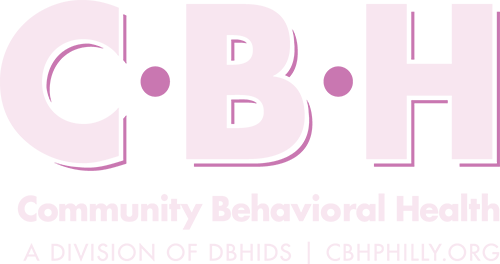Taking Action to Address Health Disparities in Maternal Care: CBH’s Commitment to Equitable Outcomes
“Eliminating health disparities is not just a goal; it’s our duty as an organization. At CBH, we are unwavering in our dedication to reducing these disparities and ensuring that every pregnant member receives the behavioral health care they deserve,” affirms Dr. Faith Dyson-Washington, our CEO.
Despite advances in healthcare, the Centers for Disease Control and Prevention (CDC) reveals that the mortality rate of pregnant individuals has been steadily increasing over the past three decades, with two out of every three pregnancy-related deaths being preventable. Social determinants of health (SDOH) prevent many individuals from BIPOC communities from having fair opportunities for economic, physical, and emotional health. Black women are three times more likely to die from a pregnancy-related cause than white women. Multiple factors contribute to these disparities, including variations in quality healthcare, underlying chronic conditions, structural racism, and implicit bias. A recent study highlighted that in Philadelphia, non-Hispanic Black women face a four-fold higher risk of pregnancy-related deaths than non-Hispanic white women. Another study showed evidence of low rates of postpartum depression treatment initiation and continuation, indicating barriers to care among low-income mothers, with additional challenges for Black women and Latinas.
To address these health disparities, CBH has developed three transformative programs specifically tailored to reduce disparities for pregnant individuals with complex mental and behavioral health concerns: Mommy’s Helping Hands, the OBGYN Community-Based Care Management program, and the Mothers’ Support and Health in Pregnancy and Parenting program.
Mommy’s Helping Hands (MHH) is accredited by the National Committee for Quality Assurance (NCQA) and addresses the unique needs of pregnant and postpartum individuals with substance use disorders (SUD). CBH care managers coordinate care for pregnant and postpartum women struggling with substance misuse and/or a substance use disorder. Through MHH, a registered nurse and CBH Clinical Care Manager are paired with a CBH member to create a comprehensive care plan. Clinical Care Managers (CCM) meet members in the community at agreed-upon locations, including their homes, inpatient settings, service provider officers, or a neutral agreed-upon location. The CCM provides a range of care management services, including enrollment and comprehensive assessment, individual goal planning, access to specialized substance use treatment, coordination of care with medical insurance, assistance with scheduling doctor and specialist visits and connecting members with community resources and supports. Since its launch in December 2018, the Complex Care team has referred more than 210 pregnant and postpartum individuals to MHH, facilitating access to crucial care and support.
In our ongoing commitment to reducing mental health disparities and addressing SDOH, CBH established the OBGYN Community-Based Care Management program. This program collaborates with renowned birthing hospitals in Philadelphia, such as the Hospital of the University of Pennsylvania, Albert Einstein Medical Center, Pennsylvania Hospital, and Temple University Health System. By screening for SDOH, CBH staff identify pregnant individuals eligible for Medicaid and connect them with CBH-certified peer specialists who have firsthand experience. Since its launch in 2022, this program has linked more than 199 pregnant individuals and their families to community support and behavioral health treatments.
Continuing to build on these models, CBH remains committed to innovation and meeting member needs. CBH’s Mothers’ Support and Health in Pregnancy and Parenting program has gained recognition for its impactful work. As part of this program, CBH is developing a tech product that provides education, peer support services, and motivation for treatment—pioneering in driving healthier outcomes.
It is important to note that CBH’s eligibility covers half the city of Philadelphia. To address maternal care issues in our city, discussions about behavioral health and substance use disorders must be included alongside prenatal and postnatal physical health outcome monitoring. CBH is dedicated to whole-person care and addressing the needs of pregnant women who may primarily present with behavioral health or substance use issues. Our Complex Care teams tirelessly contribute to the success of these programs, ensuring that members receive the care they deserve by helping to bridge the gap in health disparities. Working together, we can create a future where equitable maternal care is a reality for all.






